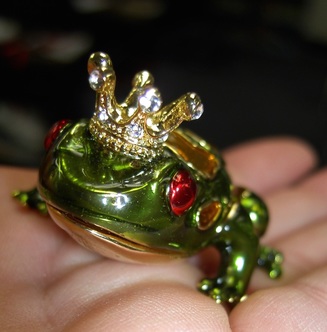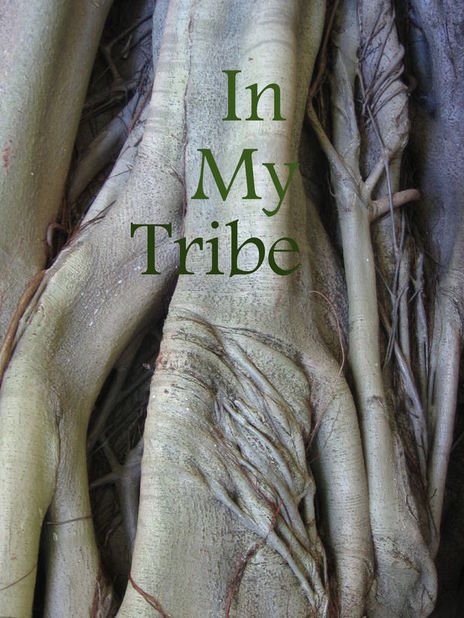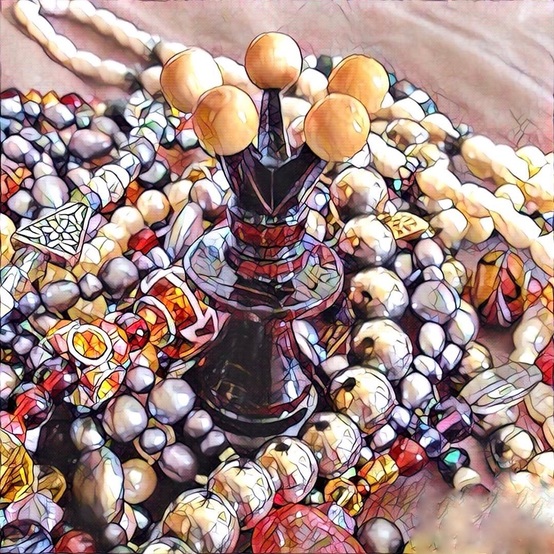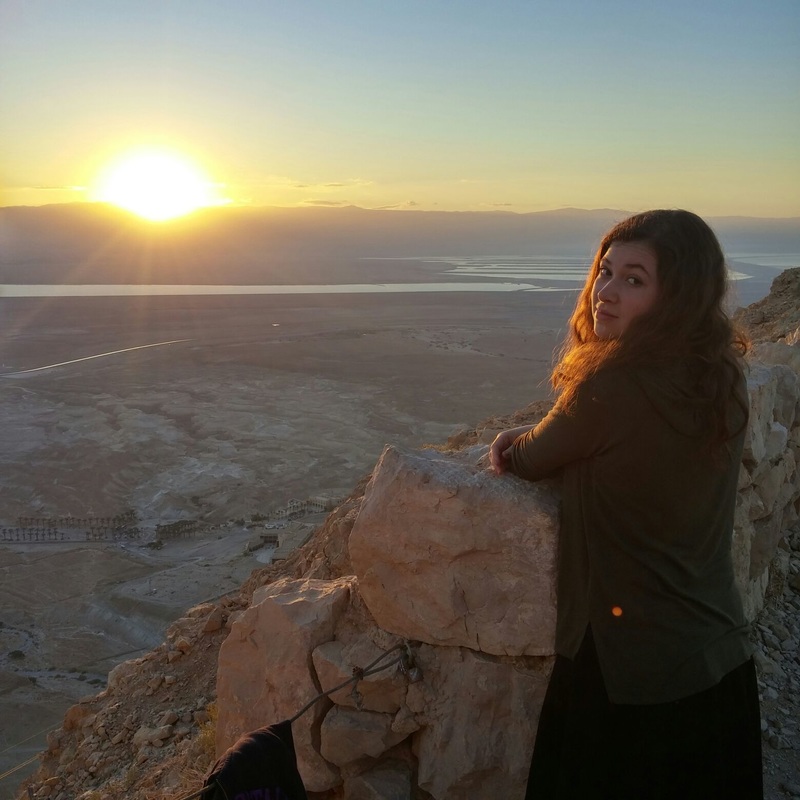|
There's a line used to illustrate the judgment and self-centered attitude of Jews from every corner of the nation: "Whoever does more than me (religiously) is a fanatic, and whoever does less than me is a heretic." When that sunk in, I decided I didn't want any part of that thinking. Someone else pointed out to me that the one thing the Jewish nation has not managed to accomplish among all the great accomplishments is unity! How is that possible? Perhaps it will be in our generation that we can make the effort to reach out to each other with love in place of criticism. How can we begin this process? One place to begin is by something I heard Rebbetzin Tzipporah Heller teach: Assume that the woman who thinks differently than you wants good. Giving the benefit of the doubt that she is good--even if you think she may be misguided--is a place to begin to understand. Another idea came from a video on Aish HaTorah: "Reach out to a Jew who is different from you." Just take one small step toward another. Give her a blessing, whisper a prayer, invite her to share her hopes and dreams for her self and her family. Listen. Listen deeply. This is a place to begin. Let's begin. Together. Please "Like" and share. And take one action step toward unity right now.
Photo by Becca Tapert from Unsplash By Henny Ephron This article is in response to a chapter on beauty in the book Sisterhood of the Copper Mirrors and is a wonderful contribution to the discussion. Many thanks to Henny Ephron of Houston, Texas.  Beauty is real. The superficial, skin deep kind of beauty. It is so real that there is a bracha (blessing) said upon seeing a beautiful woman. ברוך...שככה לו בעולמו The Talmud (Brachot 58b). Maybe even more surprisingly, the Tur in OC 225 discusses a bracha for someone with extremely unflattering features or strange looking creations (משנה הבריות). In fact, the importance of beautiful things is described in the Gemara in Brachos: “Three things improve a man's wisdom: a pretty woman, a pretty home, and pretty things.” שלושה דברים מרחיבים דעתו של אדם: אישה נאה, דירה נאה וכלים נאים When people are dating and others are telling them “looks don’t matter,” remember there is a Gemara in Kiddushin that says a man is not allowed to marry a woman until he personally sees her, because she has to be beautiful to him. There are numerous places in the Torah that describe people of exceptional beauty. Sarah Imeniu (our mother/matriarch) was so beautiful, Avrahom Avinu (our father/patriarch) hid her in a box so she wouldn't be seen. Yosef was so handsome that women would gaze at him while they were cutting vegetables, and would be so entranced that they ended up cutting their own fingers. Rabbi Yishmael was known in his time to beautify women to make them more endearing to their husbands, and save their marriages. Beauty is pleasing and relaxing to the mind. When you walk into a clean hotel room and everything is fresh and clean it automatically invites you to relax. Every time you pick up an apple in the store and turn it around in your hand to check for blemishes, you are looking for the most beautiful apple. Visiting places with picturesque scenery, studying the details of a flower, watching a gourmet chef plate food, and hiring a graphic designer to do a flyer are all testament to the impact of beauty in our lives. We have a special mitzvah from the Torah to make an effort to enhance and beautify any mitzvah we do, also known as Hiddur Mitzvah. This means looking for the perfect esrog (citrus fruit used for the holiday of Sukkot), making a sukkah feel like a home, making the Shabbos table elegant, and making the synagogue even more beautiful than one's home. The Beit Hamikdash, the Holy Temple, was known for its exceptional beauty, bringing in visitors from around the world to experience its grandeur. In fact, one of the requirements for the Cohen Gadol (High Priest) was that he needed to be beautiful. External beauty is real! There is no need to wash it away and say “everyone is beautiful.” Would you do the same when talking about the strength of a linebacker compared to someone who plays ping pong? Knowing this, how is it possible for a man to say to his bride that she is the most beautiful woman in the world? How can a mother say to her child they are the most beautiful in the world? The difference is that people are more complex than inanimate things. People have a neshama (soul). When you look at a beautiful pomegranate, no matter how long you spend studying it, it will not change. What you see with inanimate objects, is what you get. When you spend time with a person and talk with them, you are able to see a deeper side to them. You are getting to see part of their neshama. The more time you spend with someone you are actually uncovering a deeper beauty. Sometimes after meeting a person your first impression changes. As you get to know them you get to see a funny side, or a deep intellectual side, or an emotional side to the person. This is how a groom can sincerely tell his bride that she is the most beautiful in the whole world. Because to him she is. They know each other on a deeper level. This is how a mother can tell her child they are the most beautiful in the world. Because the mother knows the child in his entirety, all of his characteristics and personality add to his beauty. The neshama of a person is not something revealed from a photograph, or simply from a first impression. The neshama’s beauty needs to be sought after and looked for in order to appreciate. Once this beauty is uncovered it is deeper than the superficial beauty. This is why there are highly respected global speakers that have a lazy eye, an unusual facial birthmark, or other physical deformity and still highly sought after. People are coming to hear their words, which is an expression of the neshama. The audience took a moment to look deeper at the person and see the beauty in the wisdom of the speaker. When a person uncovers the intimate beauty of another person's neshama, it forever changes the way they see them. When the neshama’s beauty is revealed it literally lights up the person’s face, called hadras panim. Moshe Rabbeinu had such intense hadras panim that he needed to wear a veil. This is ultimately what the Gemara is referring to when it says that Yiras Hashem (awe of God) makes a woman beautiful שֶֽׁקֶר הַחֵן וְהֶֽבֶל הַיֹּֽפִי, אִשָּׁה יִרְאַת יְיָ הִיא תִתְהַלָּל . You cannot tell a person’s Yiras Hashem by looking at them, it something revealed by their actions and words. Rachel Imeinu is the only person the Torah describes as tovas ayin (good eye) and tovas mareh (good looks). When Yaakov Avinu saw Rachel Imeinu he saw she was exceptionally physically beautiful, and exceptionally beautiful in her yiras Hashem (awe of God). Parshas Shemini (Torah portion in Leviticus) talks about the dietary laws of kosher and unkosher animals. The pig is brought down as the only animal that has split hooves and does not chew its cud. The pig lays with her feet out for everyone to see her hooves (they are split, as if she is kosher), but that is as far as her qualifications go. This is like someone who is physically beautiful. The camel does not have split hooves, but if you take the time to watch the camel eat, you will see he chews his cud. This is like someone who is beautiful after you get to know them. The sheep both has split hooves and chews its cud. This is the ultimate goal, to be beautiful on the outside and inside, just like Rachel Imeinu. Photo: Malky Scheiner Please "Like" and share
My tribe is a nation filled with souls who come to this earth from the World of Truth on a unique mission. The nature of the mission has been passed from the elders of my tribe, the women and the men, in every generation. Our names carry us on our mission. Our names represent the qualities and strengths of the generation of ancestors who came before: Lion of God, Bear, Wolf, Bird, Rose, Grace, Gratitude, Beauty, Son of my Right Arm, She Shall Sing, Sunrise, Oak, My Heart, Blessed and many more. Ritual runs strong in my tribe. We have rituals with water: sacred bathing cleanses more than the body. The ancient Sacred Fire of Peace passed from generation to generation of women lights up our homes renewing body and spirit. We know the seasons of the Earth and in times of old we brought our offerings to the altar of our sacred Temple where the Spirit of the One rested for all the people of the world to comprehend and see. The incense burned in the days of old to sweeten our lives. The people of my tribe yearn still for the ancient ways to heal the world. My tribe dances and sings, celebrating the gifts from All-That-Is, Was, and Always-Will-Be. Our cycles dance with and bless the sun and the moon, honoring every season in its time. We celebrate joy in its season. We surely acknowledge the need to grieve and mourn loss in its time. We have a tradition of comfort for those who experience loss. When it is time for a soul to leave this world to return on its journey to the World of Truth, we honor the empty shell that housed the soul spark. It is treated with tenderness, cleansed, wrapped, and returned to the earth with love. Even when we take the life of an animal to eat, we honor its life force as we return its blood to the earth. We honor our sacred land by letting the earth go fallow once every seven years. Each new moon is celebrated as a time of renewal. The life cycles and coming of age are honored even as we honor our ancestor’s contract on our behalf with The One. The new moon is for the nation, but it was a gift given to the women. Our women’s stories are hidden at first glance. Yet a sincere seeker will find truth revealed. Know this: there is pain in the stories and there is no man to rescue. Even if there is a man partner, the woman must find her own way, her own power, and her own voice. Be clear: these stories are not myths. They are beyond legend yet they are rich with symbolism and metaphor. The stories of our women are beyond this dimension. They are written beyond time. As our heritage, the stories guide us in our own journey of power. Just as electricity existed before mankind discovered it, the power of the women of my tribe has existed in hidden and mystical ways. All through history, this power had to be rediscovered and reclaimed in each generation and within each individual woman. My nation, my tribe, is facing a grave test. The time has come for each woman of my nation, to rise up and stand in righteous power—to overcome the Trickster who says the ways of our nation are worthless or extinct. The time has come to stand true, even when it is not comfortable and the initiation seems impossible. Your soul will soar even with the smallest effort. Now is a time of choice. In her own perfect timing, when a Jewish woman steps into the way of her tribe, previously hidden paths open to her. These can only appear because her commitment to the journey begins the process of unlocking the secrets. There will be trials. The trials build one to become a stronger vessel for carrying the Light to which we have been entrusted. The effect is nothing short of a world redemption that will have a cosmic impact—a global shift in consciousness. Peace will reign. Here is a clickable list of resources, audio classes and articles to read to learn more about anger. These resources were used for the class Anger: Conquering the Monster Within Tshuva Boot Camp October2016/Tishrei 5777, Tzfat, Israel For a printable pocket guide Audio:
Jonathon Rietti - http://www.simpletoremember.com/media/a/challenge-of-anger/ Eli Monsour - http://www.learntorah.com/lt-shiur-details.aspx?id=9759&play=audio Rabbi Michael Skobac - Jews for Judaism https://www.youtube.com/watch?v=cr9lkX13d4Y Rav Gav Friedman - https://www.youtube.com/watch?v=w8fezuCJ9IU (see last listing below for one more that is both written and audio) Articles: Rabbi Avraham Twerski MD http://www.jewishworldreview.com/twerski/twerski_forgiveness31.php3?printer_friendly Conquer Frustration (Way #22) by Rabbi Noah Weinberg http://www.aish.com/print/?contentID=48956756§ion=/sp/48w Iggeres HaRamban - The Ramban's Letter (Written to his elder son, Nachman, with the instruction to read it weekly.) http://www.pirchei.co.il/specials/ramban/printabl.htm The Ramban's Cure for Anger by Rav A.Y. Hertman zt''l of pre-WWII Kelm http://dafyomireview.com/95 The Remedy for Anger—Based on Zohar Bamidbar 177a http://www.chabad.org/kabbalah/article_cdo/aid/1552325/jewish/The-Remedy-for-Anger.htm How to Deal with Anger—The Rebbe’s Advice http://www.chabad.org/therebbe/article_cdo/aid/2349458/jewish/How-to-Deal-with-Anger.htm Maimonides on Life, Chapter 2, Law 3(c) – Anger and Self Worship http://torah.org/learning/mlife-ch2law3c/ Mishna 15(a): Anger and Self-Worship http://torah.org/learning/pirkei-avos-chapter2-15a/ Story and commentary on Hillel and anger http://etzion.org.il/vbm/english/archive/aggada/11aggada.htm Anger Management Rabbi Jonathon Sacks article and audio http://www.rabbisacks.org/anger-management-chukkat-5775/ Being the daughter of the King means you are a royal, and as a "royal" there are responsibilities. The Jewish nation is on a mission and it really is a mission from God. How wonderful that you have unique gifts to bring to the world. So what will you do with those gifts? And how will you share them? Attitude + Gifts = Light Happiness is a really critical part of this journey in life. We are actually commanded to be happy during our holiday season. That may sound strange, how can I be commanded to be happy? How am I supposed to control my emotions like that? Shouldn't I be inspired to be happy? Shouldn't something good be happening to make me happy? This is certainly one way of thinking about happiness. There is another trend that is emerging that teaches happiness is a choice. Happiness is something you can choose. At the same time, we have a national mission so the end goal is not about our personal happiness. The Jewish mission is to be a light to the nations. Jews need to bring light to the world, on purpose with healing intentions. Striving to fulfill the mission to be light bearers is a life time study. Every class you take or text/article you study will teach you something about:
So what is our responsibility? What do we need to do and how do we behave as a royal? The first thing is to know who you are in this world. That if you are a Jew, there's a reason you are a Jew and you have a unique mission within the fabric of the nation. A place to begin is by choosing something to learn: find a book or an article or a class and plug in. If you don't feel good about the place you landed, keep looking because there are so many teachers and books that there will be something or someone you resonate with for learning with joy. Here's one place to check out: http://www.partnersintorah.org/ Learning is one level and taking action in the world is another. Charity is a wonderful way to bring light into someone's world. It could be through donating money or time to an organization or helping an individual. The Talmud (Shabbos 127a) lists some precepts that bring both earthly and heavenly reward and here are a few ideas:
A way of bringing light into your heart and home is literally through the simple yet deeply profound act of lighting candles for Shabbat. The bottom line? Royalty is about being of service! It's also one of the secrets to happiness. So, Princess, straighten your crown and stand tall as you get to the business of doing one more small thing that brings light into the world. Don't worry too much about
making an impression. Work more on making a difference.  What's the image you have when you think of a princess? Cinderella? Snow White? Sleeping Beauty? Let's see, she's about 19 years old, has a "perfect" figure, and smooth skin. The perfect, handsome mystery man comes along. whisks her off her feet onto his white steed, and they live happily ever after. Or maybe the princess in your imagination is out kissing frogs or falling in love with mean spirited monsters in order to see if she can reveal the wealthy, handsome guy who's under a spell? The princesses we see in fairy tales and Disney films have sweet birds trilling around them when they work. Now, I like birds very much. We learn a lot from them. In fact, I heard a quote recently that keeps playing over and over in my mind: "A bird sings, not because it has an answer, but because it has a song." But of course even if you have a bird you love, that bird will not make you a dress or help you make a pie. Yet, the Jewish woman has a legacy of royalty. So what's that supposed to mean? What are the qualities of true royalty? I'm not talking power hungry, evil rulers. What would you say? Here are some qualities: dignified, kind, confident, courageous and righteous. There is this idea of royalty by birth. In Egypt it was the fist born of the first born of the first born, and so on. In Judaism, we are all considered children of the King. Sarah and Avraham were considered royals of the nation and if you are a Jew today (even by conversion) you are descended from them. So stepping into the royalty that you are means stepping into nobility. Being noble in the truest sense is about being service oriented. In Judaism there is a morality that comes with the position. There's an accountability to the Highest Source, to your nation, to yourself, and to all mankind. There is also a sense of purpose and building--the building of a nation. (This is not about "being better" than others it's about being your personal best.) Our matriarch Sarah's name means princess. She was so striking in her poise, wisdom, beauty, and essential power, that a princess of Egypt (Hagar) followed her to become her hand maiden! Esther was made Queen of Persia and is another role model about the purpose of position. No where, in any of our stories and history, is the Jewish woman waiting around for her prince to come rescue her or wake her up. If you study the scriptures, you'll find that there are plenty of times that it's the woman who saves the day. It's a true partnership between man, woman, and God. Rise up. Take your place in the nation. There's no need to kiss frogs.  Our sages teach us that, "A person is led on the way that she desires to go." If you want to do good, you will have Heavenly assistance. If you want to connect more deeply with HaShem (literally "the name"-meaning the Eternal), you will be led to the practices that will do that. Desire to deepen in the truth of returning to your soul and gates will open. Deepening in spirituality is not an easy path. It is not meant to be. It is meaningful and purposeful and fulfilling. It will leave you with ever more questions. The discoveries will open with time. Like a flower, each of us unfolds in her own time. There's no need to pull on the petals to make the flower open faster. There's no reason to rush another in her journey. You're not alone on your spiritual path so be clear about what you want and the way will open for you. "There is nothing ordinary about a Jewish woman. No matter who she is, regardless of her particular circumstances, she is a potential wellspring of goodness and faith, reflecting all that was given at Sinai. Single, married, divorced, widowed, mothering… Praying, working, learning, teaching, building, healing, growing, waiting. Every daughter of Israel is a precious resource of unique creative energy. Each Jewish woman also represents one more possibility to reach the kind of merit needed to illuminate and transform our planet." ~Rivka Zakutinsky
|
about this blogIf you look into the scripture of the Jewish people, you will see the strength and beauty of the Jewish woman throughout our generations. This blog and website is dedicated to bringing their stories and strengths to light, to give all women access to the truth about Torah, Judaism, and the significant role of partnership of women in building the nation, which in turn has a mission to bring light into the world for all nations. Archives
August 2019
Categories
All
|




 RSS Feed
RSS Feed
